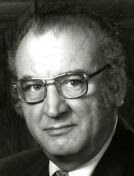This continues from the previous
Part 25 presenting a new translation of C.F.W. Walther's seminal essay in 1859 (see
Part 1 for Table of Contents). This Part 26 finishes Endnote
[B] and continues on to Endnotes
[C] and
[D]. Walther relates Luther's experience before the great Holy Roman Emperor in the "Diets" of Germany:
On that he writes that the mighty emperor Charles, whose kingdom was so great that the sun did not set on his lands, and all the emperors and princes of the whole world should let stand our church and its basic doctrine [Justification]; and therefore he defies them before their eyes, without any other weapon than God’s Word. All world and church history gives us no example of similar courage.
How was it that
Prof. Cameron A. MacKenzie (of CTS-Fort Wayne, professor of Church History) could "praise" Walther (and Luther)
on Walther’s Bicentennial... by essentially condemning Walther's praise of Luther? Or is Prof. MacKenzie jealous of the rich measure of the Holy Spirit endowed to Luther... and Walther? MacKenzie's essay is especially disgusting for its almost complete lack of
any measure of the Holy Spirit. I can hardly convince myself to repeat MacKenzie's awful statement:
"Walther is long gone and so is his whole approach to Martin Luther as hero." — Prof. Cameron A. MacKenzie
Maybe Prof. MacKenzie is thanking his "lucky stars" that he has such a wealth of knowledge that he can judge Walther and Luther! So this essay by Walther apparently means nothing to Prof. MacKenzie, but it does mean something to all Christians, for it was
C.F.W. Walther who uncovered again
Luther's Reformation in our modern times, in spite of those like MacKenzie who would bury it again. Could MacKenzie's teaching be exactly the "cold teaching" that Chemnitz warned the Lutheran Church about? Ah, but maybe Walther is not "long gone" and maybe "his whole approach to Martin Luther as hero" never really went away... except in his LC-MS? Could it even be that one of today's great enemies of the Gospel is ... MacKenzie's own LC-MS?
Underlining follows Walther's emphasis in original.
Hypertext links have been copiously added for reference to original sources and on several subjects.
Highlighting is mine.
= = = = = = = = = = = = Part 26: Pages 75-77 (1880) = = = = = = = = = = = =
The Lutheran Doctrine of Justification.
If we compel the doctrine of justifying faith in this way, it will [1880-75] become evident that the sects (Methodists, followers of [Jacob] Albright [Albrechtsleute, see Evangelical Association], etc.) are the bitterest enemies of the doctrine of justification, and that we will really begin to bear the reproach of Christ and will be [Essays1-56] persecuted as the most horrible seducers that ever walked the earth, just as Luther also testifies that blood was first shed on earth because of this doctrine and so indeed also the last will certainly flow over of it. Both the Pietists of earlier times as well as the so-called “modern theologians” often show how hard this doctrine is can be seen in that they teach it purely in itself, but then in the application and the many warnings, – indeed not to access it before one has first found oneself especially prepared in many respects – they take back from aggrieved sinners all that was given, as if the thirsty one were first offered delicious grapes and then given a shock when he now wants to take them. Where else does the resistance to the comforting doctrine of absolution come from, as today the opposition goes on and on, except since they have not grasped our main article? God grant that our proceedings on this subject might be the trumpet to awaken the hearts of many also among ourselves, so that we may smite us on the forehead and realize how we ourselves are still so clouded over in it and how, though indeed by the grace of God we have been led on the right road from the beginning of the existence of our Synod, but still here are many previously unsuspected treasures. By our fathers at the time of the Reformation, God already had them drawn from the mine of the Word. He does not show such a grace twice. Therefore, if we do not want to draw from the them, and especially from Luther, so we will have to starve. As God gives food to a child through its father, and it must perish if it does not want to take it from him: so God has entrusted the Bread of Life to our father Luther therewith to feed us. If we despise this grace of [1880-76] God and want be a Luther ourselves, so we must waste away.
[C] One can see in Luther so purely what it means to have a solid heart, of which our unionistic time so does not know anything. He confers all, however high, glorious, great and powerful they are, to the devil, as soon as they argue against our doctrine of justification, and namely, as he says, from “inspiration of the Holy Spirit.” Such courage only a [one?] [W1859-54] man can have, who who has been given a rich measure of the Holy Spirit. Whom else can be found one who had, in addition to joyfulness of heart, such formidable earnestness and holy wrath?! Remember that Luther wrote this when all papal powers had conspired to exterminate Luther and our church. On that he writes that the mighty emperor Charles, whose kingdom was so great that the sun did not set on his lands, and all the emperors and princes of the whole world should let stand our church and its basic doctrine; and therefore he defies them before their eyes, without any other weapon than God’s Word. The whole of world and church history gives us no example of a similar courage. Indeed the tyrants would have brought him to the stake if God had not held their hands, — if he would not have needed him as the Reformer. Everyone else would have been torn in such circumstances into a thousand pieces. Luther himself was in spirit on the funeral pyre for nearly 30 years, whose death he would have endured with gladness and rejoicing: but it was not God’s will that he should teach by his death at first, but in and through his life. But as he kept the field against his enemies only because the doctrine of justification lived in his heart, and he accordingly taught it ever and again: so also our Synod can be victorious against the sects and all other enemies only if a fire, lit by a correct [1880-77] knowledge of the doctrine of justification, starts to flare up in us as it burned in dear Luther.
[D] It is a consolation for our time, though a sad one that Luther complains about the terrible lack of a right knowledge of our article already in his lifetime and in the middle of the Lutheran Church, that even in 1530, also the year of the handing over of the Augsburg Confession, he testified that only very few understood it rightly, while although most pastors could indeed thoroughly scold very well against the popes and the priests, it was at best that they managed to fall into an expression of the doctrine of justification correctly and they spoke of it like a dream. With all [his] complaints about the blatant contempt for this doctrine, Luther nevertheless, after being very mercifully freed from the papal yoke, was willing to teach and preach it with all his might till his death—and indeed, you know, faithfully did so. It is fitting for us to note this to our salutary shame. We—alas!—only too often want to hold back the full comfort of the Gospel from our congregations when we are faced with a lack of fruit from it; then the poor people must remain lying in their misery, and no more help is for them. We often still lack the proper compassion and love of Christ for these poor souls that Luther abundantly had that he neither would nor could hide the riches of divine grace, although and precisely because his heart was ready to break because of the prevailing contempt of these riches. It is also strange how fearfully his prophecy was fulfilled that after his death things would come to the point at which none of the Wittenberg theologians would remain faithful to the true doctrine of justification. Especially it is to be remembered finally that Chemnitz, deeply moved by Luther’s complaints, cites negligent learning and cold teaching of this article as the reason for its eclipse and its final downfall. [1880-78] [W1859-55]
= = = = = = = = =
cont'd in Part 27 = = = = = = = = =
Walther speaks thus of Luther:
...he kept the field against his enemies only because the doctrine of justification lived in his heart and he accordingly taught it ever and again:
But Walther wasn't interested in just old history, he was interested in the same "
here and now" teaching that President Matthew Harrison claims for himself. So what was the "here and now" teaching that Walther was interested in:
...so also our Synod can be victorious against the sects and all other enemies only if a fire, lit by a correct knowledge of the doctrine of justification, starts to flare up in us as it burned in dear Luther.
It seems Luther's enemies are still on the field, but the (
Lutheran)
Doctrine of
Justification is still holding the field against them... and
only through
LDJ. Will you, dear reader, not
follow Luther and believe God at His Word? Would you not let that fire flare up in you knowing that God is
already reconciled to
you? (2 Cor. 5:20) If Walther's testimony is not enough, would you listen to Martin Chemnitz, the Second Martin, on this as Walther relates:
...Chemnitz, deeply moved by Luther’s complaints, cites negligent learning and cold teaching of this article [of justification] as the reason for its eclipse and its final downfall.
And finally, Walther today sets before the Lutheran Church a choice:
If we despise this grace of God and want be a Luther ourselves, so we must waste away.
Do you hear Walther speaking to us? ==>> Don't waste away... go
Back To Luther!
In the next
Part 27...

.jpg)
.jpg)













